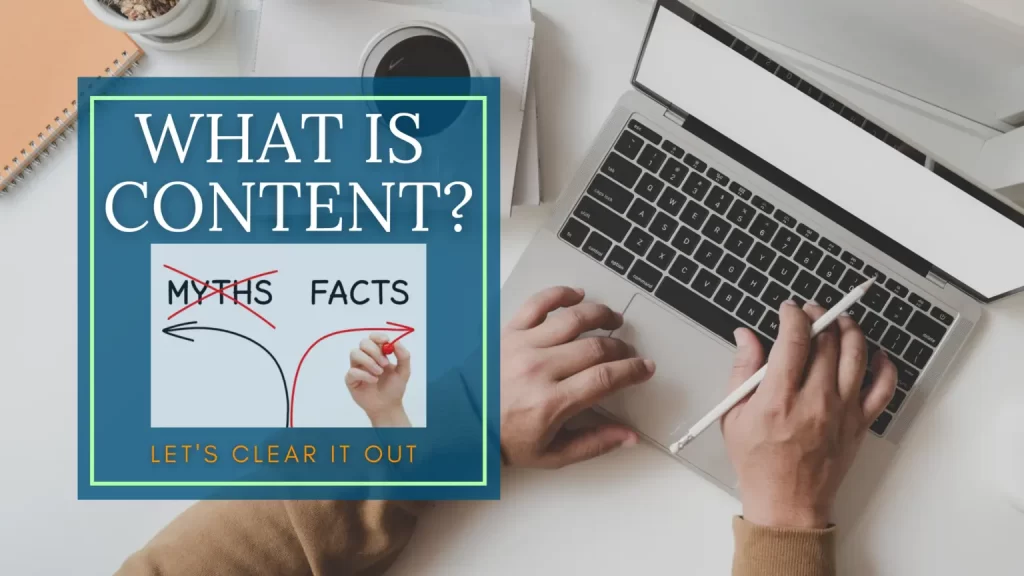
What is Content, and What is not? Myth vs. Reality
When you search online, i.e., Google what is content, you will get a bunch of definitions from Oxford languages followed by a series of blogs.
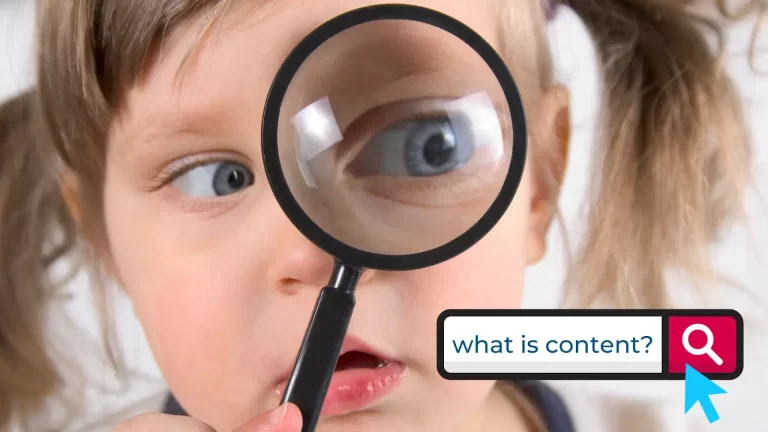
These blogs tell you that content is what you consume in e-books,,magazines, speeches, blogs, profiles, are content. Content is the information that we consume about a business, humans, all the products, and more.
With progression, content is now defined as information consumed in many ways, like podcasts, videos, and audiobooks.
But despite the progress we have made, many people still lack the idea of what content is.
During a small survey done by the team of My Content Cafe, over 50% of the small business owners have no clue of the term content.
Another group of employees responded to content as entertainment videos or blogs and articles.
People tend to go with the fact that content is written information on a website. But the concept of content as online information is too narrow. People often tend to combine content with the medium.
In this blog, we will burst the glass doors that have confined content and broaden the scope of what content actually is.
The rumor around the term Content

What exactly does it mean?
We, as a team of a content writing agency, get this question a lot.
When we search it online, it says, ‘Content is the driving force of your business.’ You can find numerous blogs explaining –
– What is content marketing?
– What is content strategy?
– What is content development?
And if not that, then we get numerous blogs and videos on how content can help your business make 7-figures.
It’s hard to get anything that says, What is content? Though the question seems simple, it has been one of the most difficult ones to get the answer for.
Here is what My Content Cafe has to say –
Content is any information that you consume in day-to-day life, sleeping or awake. Therefore, content is everything around you. Though this seems to be vague, this is true.
Let us explain to you how.
Have you ever entered a shopping complex to buy a mobile phone?
With different brands just in proximity to each other, each salesperson will tell you numerous phone specifications and reasons to buy it. You put a counter-question, and they will compare their phones to all other brands, battery life, screen resolution, gaming features, storage, and more.
Not in more than 10 minutes, you have information to write to a product review or comparison blog.
You consumed content in real-time.
Take another example, for instance.
You followed your mother in the kitchen, indulged in a casual conversation with her while she prepares the ingredients for a truffle cake. Even without actually aiming to learn the process, you learned the make-how. It happened by watching and asking questions out of curiosity.
Next time you can share the recipe with your friends on clubhouse or maybe share it with your online readers.
Thinking of creating a simple video? That sounds great too.
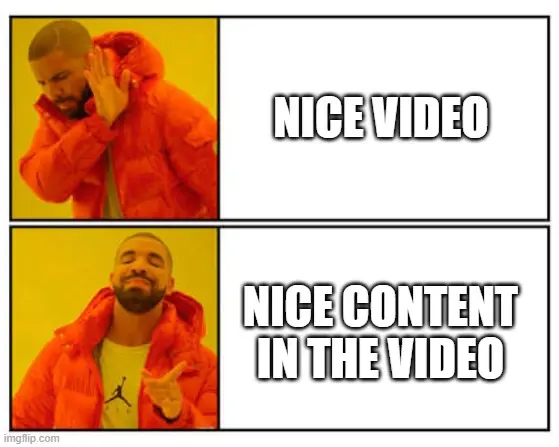
We consume content at every walk of our lives. Anything happening around us, our eyes looking at it, our ears listening, our brain processing is the way we are taking in content.
Hence, justifying the argument – Everything around you is content.
Activities that we do and that happens around us is content. People out there want to know how you are doing something which they also might like to do.
This innate curiosity to seek and spread information forms a basis of content.
Content that reaches you on a silver platter is, however, information collected from an original source, altered, and electronically reworked to become an end product.
What is the difference between content and content marketing
People are highly confused with the terms content and content marketing. There is a way to simply explain this with the quote of Michael Brenner, which we would modify a little and say –
‘Content is produced through real-life incidents and because someone in the organization asked for it, while content mixed with marketing is what audience asked for.’
Content marketing is attracting the audience to witness what you own, what you have experienced, ultimately to achieve your objectives.
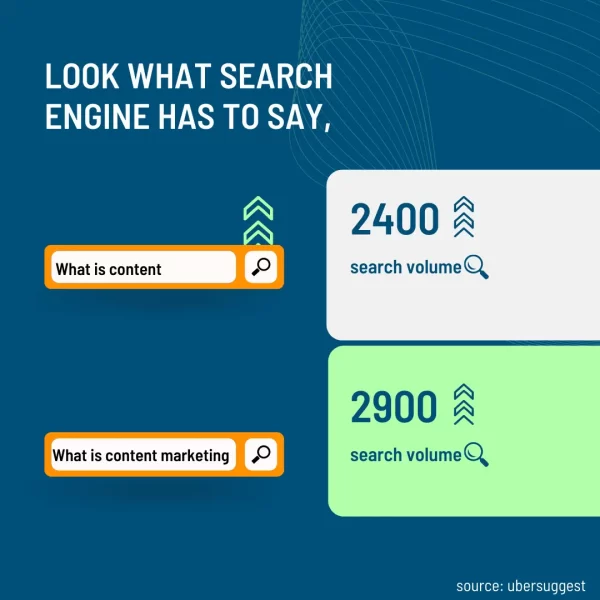
One of the famous and a very creative argument suggested by Oliver Blanchard says –
The term ‘Content’ is vague enough to mean anything or everything. It’s a word that suggests an empty space to be filled with.
Here comes the role of medium, that many people often confuse with the term content. Content, as suggested above, is an empty vessel that is filled with information through mediums like videos, texts, pictures, articles, poetry, pizza, or even fart.
Content seems like an empty utensil that we fill with meanings.
The content we work on is not limited to apps, websites, Tiktoks, or other digital platforms.
I think we totally agree with what Dr. Brene Brown has to say –
‘Content as the information with the soul that informs, amuses, and engages.’
If you don’t know who Dr. Brene Brown is, you need to Netflix her right away! It’s time to consume some content.
The biggest myth of content – broken!
Myth – Content is shorthand for Internet media.
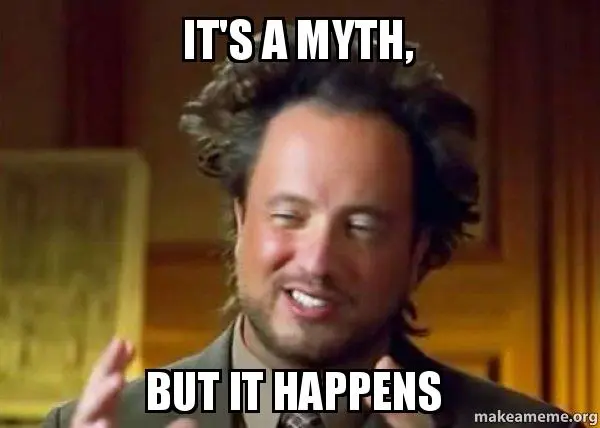
When most business owners compare the content with online media and question themselves that content is not what their business needs – Red alert! It’s incorrect.
Every business in the world revolves around the ocean of content and needs content making and content marketing to thrive.
The ‘online’ gets treated differently than ‘offline’ while everything is content. The line is merely between media and platform.
My Content Cafe is content with this idea of Content. Content is everywhere; you just have to be in the moment to consume it.
